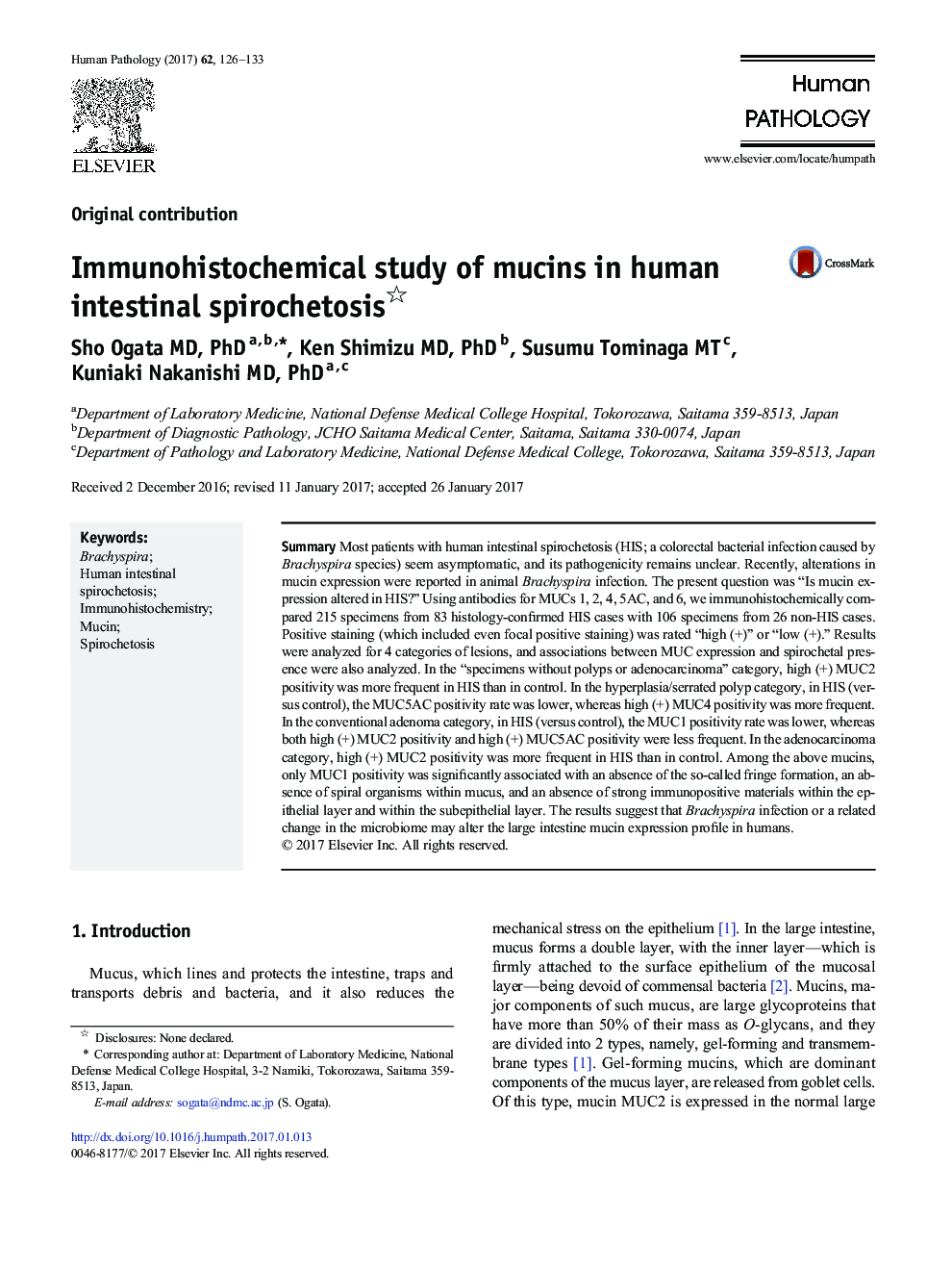| کد مقاله | کد نشریه | سال انتشار | مقاله انگلیسی | نسخه تمام متن |
|---|---|---|---|---|
| 5716283 | 1606648 | 2017 | 8 صفحه PDF | دانلود رایگان |
- Brachyspira infection may alter the mucin expression profile in humans.
- Degree of MUC2 positivity was higher in specimens without polyps or cancer in HIS.
- MUC1 positivity was associated with negative result in IHC detection of spirochetes.
SummaryMost patients with human intestinal spirochetosis (HIS; a colorectal bacterial infection caused by Brachyspira species) seem asymptomatic, and its pathogenicity remains unclear. Recently, alterations in mucin expression were reported in animal Brachyspira infection. The present question was “Is mucin expression altered in HIS?” Using antibodies for MUCs 1, 2, 4, 5AC, and 6, we immunohistochemically compared 215 specimens from 83 histology-confirmed HIS cases with 106 specimens from 26 non-HIS cases. Positive staining (which included even focal positive staining) was rated “high (+)” or “low (+).” Results were analyzed for 4 categories of lesions, and associations between MUC expression and spirochetal presence were also analyzed. In the “specimens without polyps or adenocarcinoma” category, high (+) MUC2 positivity was more frequent in HIS than in control. In the hyperplasia/serrated polyp category, in HIS (versus control), the MUC5AC positivity rate was lower, whereas high (+) MUC4 positivity was more frequent. In the conventional adenoma category, in HIS (versus control), the MUC1 positivity rate was lower, whereas both high (+) MUC2 positivity and high (+) MUC5AC positivity were less frequent. In the adenocarcinoma category, high (+) MUC2 positivity was more frequent in HIS than in control. Among the above mucins, only MUC1 positivity was significantly associated with an absence of the so-called fringe formation, an absence of spiral organisms within mucus, and an absence of strong immunopositive materials within the epithelial layer and within the subepithelial layer. The results suggest that Brachyspira infection or a related change in the microbiome may alter the large intestine mucin expression profile in humans.
Journal: Human Pathology - Volume 62, April 2017, Pages 126-133
